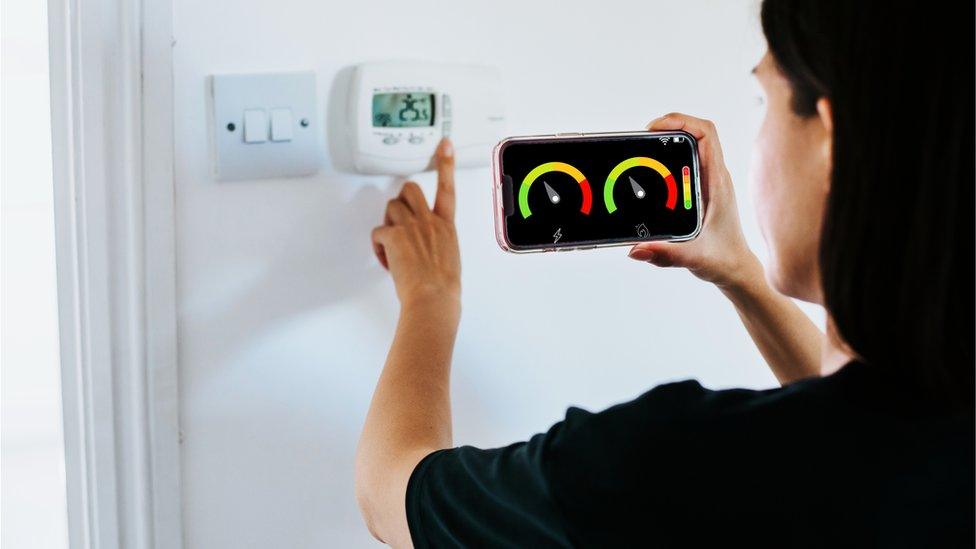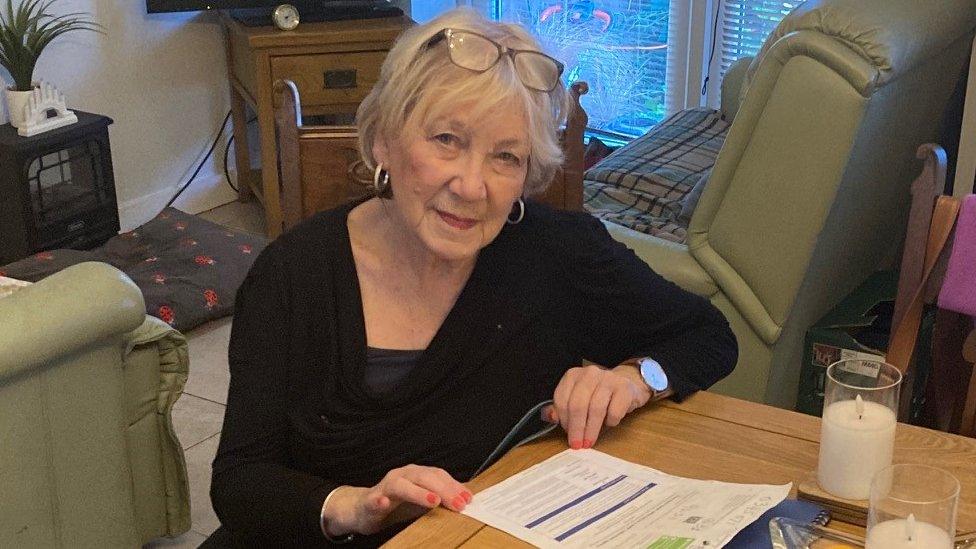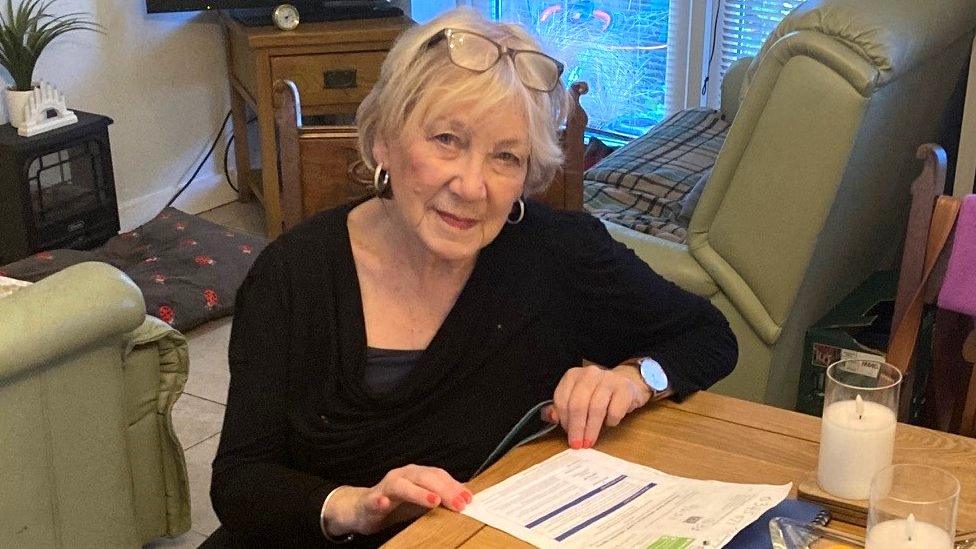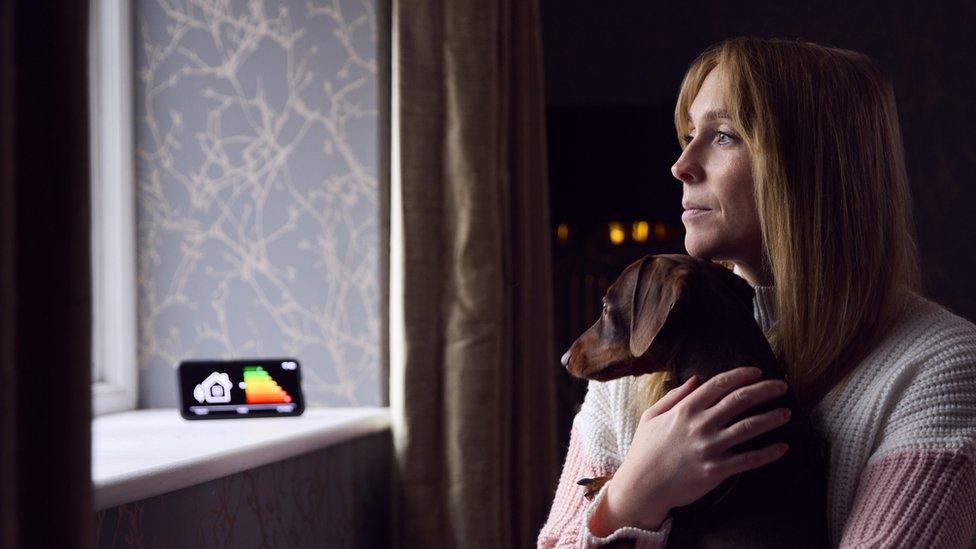British Gas will stop remote switches to prepayment meter
- Published

British Gas has said it will stop switching people onto prepayment meters via their smart meters when they struggle to pay their bills.
It comes amid growing calls to stop the practice, which critics say puts vulnerable people at risk.
Citizens Advice said forcible switching should be banned, adding it had seen a big rise in clients needing crisis support such as emergency grants.
Ministers are also preparing to write to regulator Ofgem about the issue.
The boss of British Gas, Chris O'Shea, said his company would stop remote switching smart meters onto prepayment mode and add extra vulnerability checks.
Britain's biggest energy company has also promised £10m of extra support for customers in need, which could include non-repayable credit of up to £250 for those struggling the most to top-up their meter.
"We know that some prepayment customers are self-disconnecting and not coming forward for help, so we have reviewed our policies to do more to target support at this group," he said.
However, the energy supplier has not ruled out forcibly installing prepayment meters in people's homes.
'More expensive'
People using prepayment meters pay for their gas and electricity by topping up their meter, either through accounts or by adding credit to a card in a convenience store or post office.
This is a more expensive method of paying than by direct debit, but is sometimes the only option for people who have struggled to pay and are in debt to an energy supplier.
However, critics say it leaves vulnerable customers at risk of running out of credit and "self-disconnecting" when they cannot afford to top up.
Last year, an estimated 600,000 people have been switched to prepay, according to Citizens Advice, either by their supplier physically installing a meter in their home, or automatically having their smart meter switched to prepay mode.
In a letter to Ofgem, the Department for Businesses is expected to call for greater scrutiny of whether these switches are justified.
Energy suppliers point out that if customers are allowed to build up unaffordable debts, then this money would eventually be recouped from everyone's energy bills.
Citizens Advice said it helped more people unable to top up their prepayment meter last year than in the previous 10 years combined.
It said that among its clients, 38% of those were single people, and 37% were single parents.
The data also shows that, among its clients, a majority of people in this situation were disabled or had a long-term health condition.
Dame Clare Moriarty, chief executive of Citizens Advice, said: "In the past, prepayment meters may have worked as a solution for some people on a low-income."
Now, she said these meters were a "squeeze point" for people's finances, leading to some sitting in "cold, dark homes".

Audrey Risdon said her situation was not resolved until Citizens Advice became involved
Audrey Ridson, 81, from Hampshire, told the BBC earlier this month that she was in hospital recovering from a fall when her energy firm switched her to a prepayment account.
"[The supplier] said: 'We've changed it over already to a card payment and you'll have to go to a local shop [to top up the meter]'.
"My daughter-in-law said: 'She won't be able to do that. She's got to have a special walking stick. She won't be able to get up to town'. And they didn't listen to her. It was dangerous to go up there for me because I had this injury.
"They charged me nearly £200 a month just for a shower and a light near my cooker," Audrey told the BBC.
She added that she had built up arrears while she was recovering in hospital from the fall.
Dhara Vyas, deputy chief executive at Energy UK, which represents energy firms, said: "Suppliers are required to have exhausted all other options before installing a prepayment meter by warrant - only after repeated unsuccessful attempts to contact the customer to discuss repayment options and checks to ensure they do not go ahead when customers are in the most vulnerable situations."
She said that difficult decisions had to be taken about indebted customers, as suppliers were required to try to prevent them falling further into arrears.
"Any increase in bad debt ultimately ends up costing all consumers more money, as it is recouped from bills," she said.
Trade-offs would be needed if alternative ways to deal the issue were brought in, Energy UK said.

Why is this allowed and what can you do?
Before smart meters existed, energy firms would have to get a warrant to enter your home and physically install a prepayment meter
Now, smart meters enable energy firms to switch customers from direct debit payments to a prepayment meter system remotely
Ofgem rules state that energy suppliers must have effective checks and balances in place when switching the mode of a smart meter
The regulator advises customers with concerns to speak to their supplier. Under Ofgem rules they must offer payment plans you can afford and you can ask for emergency credit if you use a prepay meter and can't top up
Breathing Space, sometimes called the Debt Respite Scheme, is a free government scheme that could give you up to 60 days' space from creditors to set up a debt solution. Step Change debt charity can help you to apply, external
Citizens Advice offers this guide: Stop your energy supplier moving you to prepayment, external
Related topics
- Published12 January 2023

- Published9 November 2022

- Published15 February 2024
